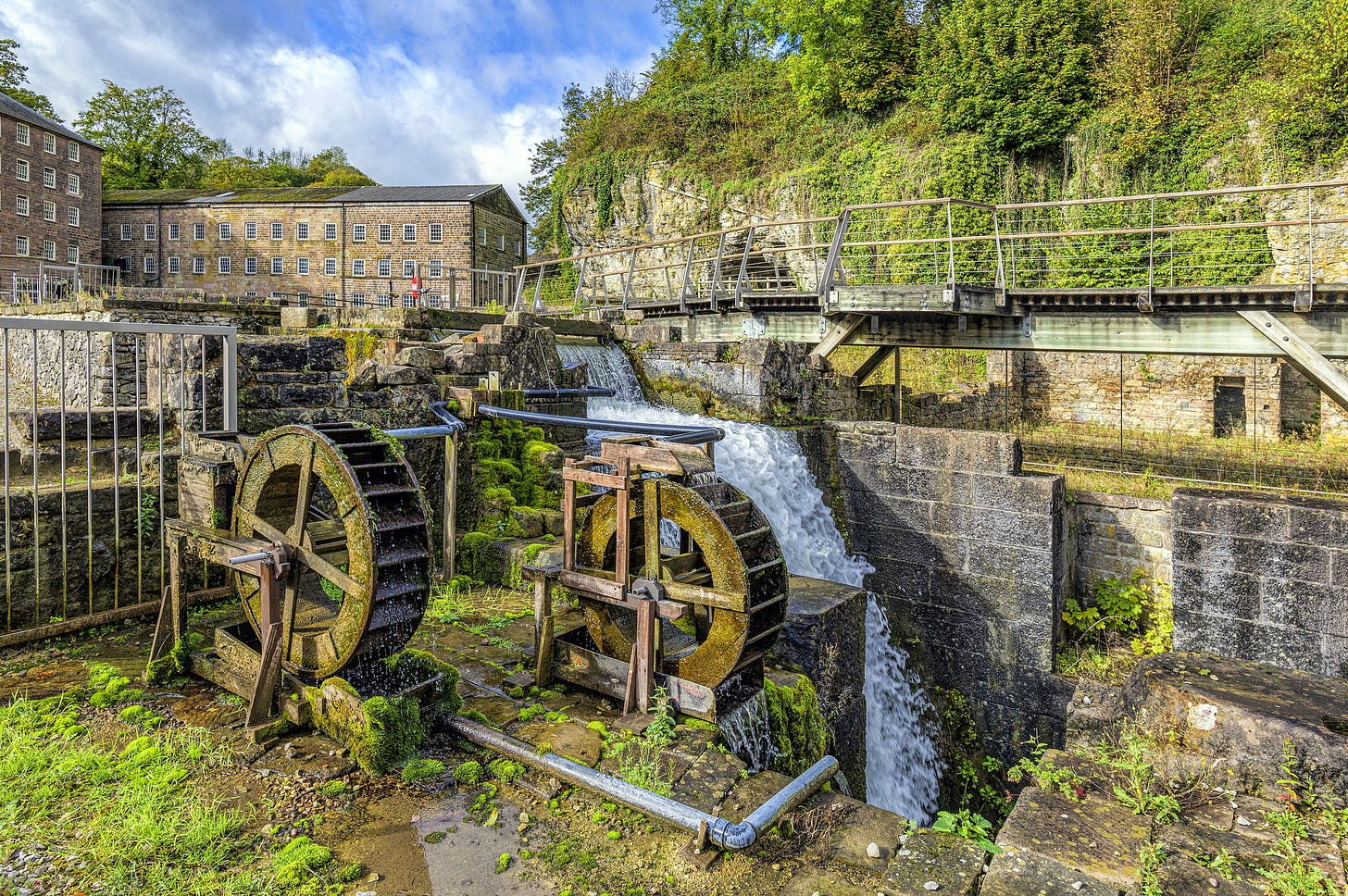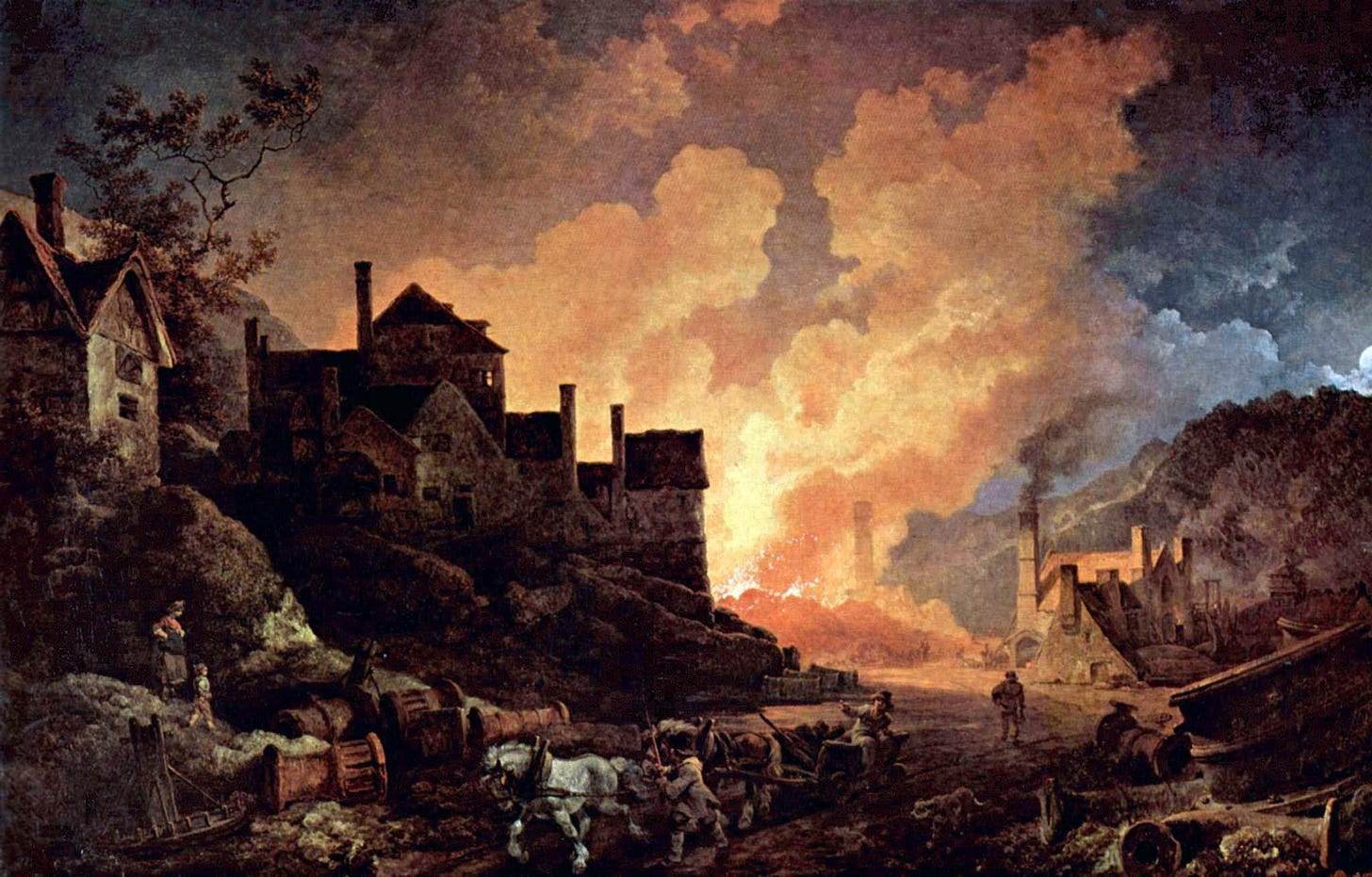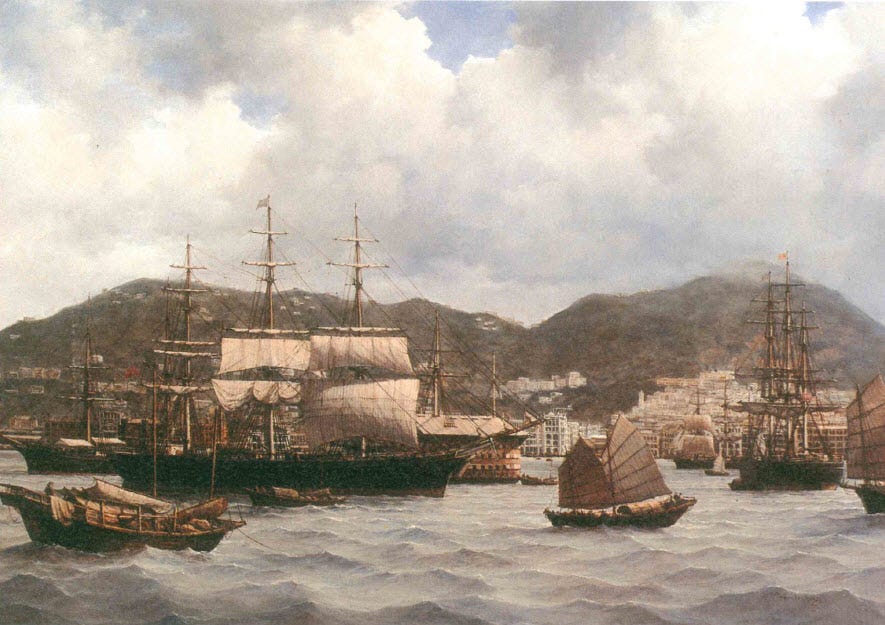Britain Then, America Now
Nations rise on industry but fall when they rely solely on finance
History rarely repeats in exact form, but it often rhymes. Britain and America offer a case in point. Britain was once the world's leading power, shaping the 19th century with its factories, navy, and empire. America took on that mantle in the 20th century, with unmatched industrial scale, a dollar-backed financial system, and global reach sustained by alliances. Both nations seemed, in their respective peaks, to stand at the centre of the world economy.
Yet Britain's experience shows that leadership is not a permanent state.
Britain's story is not one of sudden collapse but of gradual slippage. Industrial dominance was lost first, to rivals who invested more boldly in the technologies of the future. Imperial reach then ebbed away, as the costs of war and the rise of nationalist movements made the old model unsustainable. Finally, Britain's supremacy in finance, which for a time offered a residual source of strength, came under strain as the material foundations beneath it weakened.
America today is not Britain in the 1950s. It is larger, richer, and more integrated into the world economy than Britain ever was. But echoes are there, and the same question runs through both stories: what happens when the industrial base of power erodes, yet the financial and strategic commitments built on that base remain as heavy as ever?
This edition sets out to examine the sequence that shaped Britain's decline—industrial, imperial, and financial—and to consider how a similar trajectory might unfold for America. It does not predict an inevitable fall. Instead, it aims to draw out the risks of over-reliance on finance and empire, and the dangers of neglecting the real economy.
1/ Britain built the world’s first industrial machine
Britain entered the 19th century in a position no other country had reached. The Industrial Revolution began there, and mechanised production gave it a decisive lead. Textile mills produced cloth at new speed, coal mines powered engines for factories and railways, and ironworks supplied ships, bridges, and machines worldwide. This scale of production, combined with quick adoption of new methods, created an industrial machine without precedent. Goods were made more cheaply and in larger volumes than on the continent, giving Britain both commercial and strategic advantage.
Industrial power extended beyond factories. It sustained the navy, which secured trade routes and projected force overseas. Goods manufactured in Britain reached markets across the globe, whilst colonies supplied raw materials for home industries. By mid-century, Britain exported more than the rest of Europe combined and dominated shipping and trade finance. The phrase “workshop of the world” described fact, not ambition.
Yet leadership brought risk. A country that dominates will soon rely on its strengths instead of making bets on new technologies. Britain's early success created wealth and a thriving financial services industry, but also complacency. Capital that might have gone into steel, chemicals, or electricity flowed instead into empire or established industries. London financiers earned such high returns trading across the empire that they avoided the risk of backing new steel-making ventures. By the late 19th century, when heavy engineering, steel, and electricity defined the next revolution, Germany and America forged ahead whilst Britain clung to older methods.
The first signs of weakness appeared quietly. British factories looked as modern as any other but used dated processes. Integrated supply chains and advanced techniques took root abroad. Britain's early start had given it time, but without reinvention, advantage became a burden. This tension between initial success and later adaptation marked the beginning of a long decline.
2/ The empire underwrote finance and diverted Britain from industrial renewal
The British empire reshaped Britain's economy and secured London's rise as a global financial centre. Colonies supplied raw materials, absorbed manufactured goods, and allowed Britain to control trade routes. Merchants and bankers funded infrastructure worldwide, whilst the gold standard, formalised in 1821, gave sterling stability and trust. London became the hub of global credit: banks, law firms, and merchant houses managed networks stretching across continents.
With the empire as tangible backing—control of trade routes, colonies, and resources—the pound remained strong:
The system worked because the empire provided collateral. This was the era of the first globalisation, and London's financial sector deepened. Even as German and American factories began to outproduce Britain, imperial assets guaranteed financial claims. The empire became an insurance policy for financial dominance.
But this came at a cost. Secure imperial returns made investors cautious about funding new industries at home. British capital abandoned manufacturing for financial services and stayed globally dominant for another century. As Germany and America built cutting-edge steel mills, British capitalists had legacy manufacturing capacity with lower marginal costs. Why risk building greenfield plants when you could earn immediate returns through the City of London? This is all explained by one of Clayton Christensen's innovation frameworks: the “DCF trap” of comparing risky industrial investments against leveraging existing assets.
All in all, the empire underpinned financial supremacy but inspired a preference for safety over innovation. Historians call these “invisible exports”—financial services, insurance, shipping finance, and investment returns from the empire. These generated massive current account surpluses that backed the pound, even as Britain ran visible trade deficits. That fragility would be laid bare in the 20th century, when war and resistance from colonies made the old order impossible to sustain.
3/ Two world wars destroyed the empire’s foundations
The 20th century exposed Britain's structural weakness. Two world wars drained resources, wrecked infrastructure, and forced concessions across the empire. After World War II, nationalist movements surged in India, Africa, and the Middle East. Colonies sought independence, and Britain could no longer enforce the global reach that had long sustained its financial supremacy. Without the empire's production and resources, Britain found itself with little to underpin its financial standing:
The loss, driven by American pressure as well as financial necessity, carried immediate weight. Sterling gave way to the dollar as the reserve currency under the new Bretton Woods system. Raw materials, ports, and markets once secured by imperial authority slipped away. Britain's economy, still large, now operated in a world where production was dispersed and increasingly dominated by America, Germany, and Japan—both of the latter having already overcome their crushing defeats of 1945.
At home, pressures mounted. Reconstruction demanded heavy spending, while labour shortages, inflation, and social reform diverted funds from industrial investment. Britain’s industrial base weakened just as global rivals gained ground. The wars revealed that the empire had been more than political power: without industrial leadership, it had been the foundation of Britain’s economic and financial strength. When that foundation vanished, Britain had to rely on its financial sector alone to remain relevant. This marked a lasting shift in the economy—from production, to empire, to finance. With the empire gone, industrial weakness was exposed, putting London’s status as a global financial centre at risk.
Indeed, a nation that does not produce finds it harder to sustain financial credibility. Yet Britain did not collapse outright. Instead, it reinvented itself brilliantly through offshore finance.

4/ London reinvented itself as a global financial hub under pressure
With industry in decline and the empire gone, Britain turned decidedly to finance. From the Eurodollar market born in 1962 to the London Big Bang in 1986, the City became the hinge of global capital. Membership of the European Community and then the EU added weight. London played three roles at once: financial centre of Europe, bridge between Wall Street and the continent, and manager of a web of offshore centres stretching from Jersey to Hong Kong to the Cayman Islands. This “spider’s web” still funnels half the world's offshore wealth through London.
The shift, however, carried costs. Wealth and jobs clustered in London, whilst many regions relied on subsidies or faced decline. Inequality deepened, fuelling political tension. Finance provided global relevance but depended on rules, trust, and steady demand, not industrial output or demographics. London never needed the whole country to make an impact on the global financial stage.
Then it went from bad to worse. By the early 21st century, the City faced new strains. Following 9/11, rising scrutiny of offshore banks and tax havens weakened the appeal of Britain's offshore network. From 2016 onward, Brexit compounded the risk, cutting off direct access to European markets and making it harder to serve continental clients. At the same time, America's financial sector strengthened after the 2008 crisis, whilst Shanghai, Singapore, and Dubai drew business away.
These challenges highlight the limits of an economy overly dependent on financial services without a strong industrial base. As of today, the UK economy remains anaemic, with growth projected at just 1.3% in 2025, whilst the budget deficit sits at £137 billion. The abolition of non-dom tax status has prompted high-net-worth residents to reconsider UK residency. Without strategic investment in industrial capacity, the UK risks prolonged weak growth and diminished global influence.







